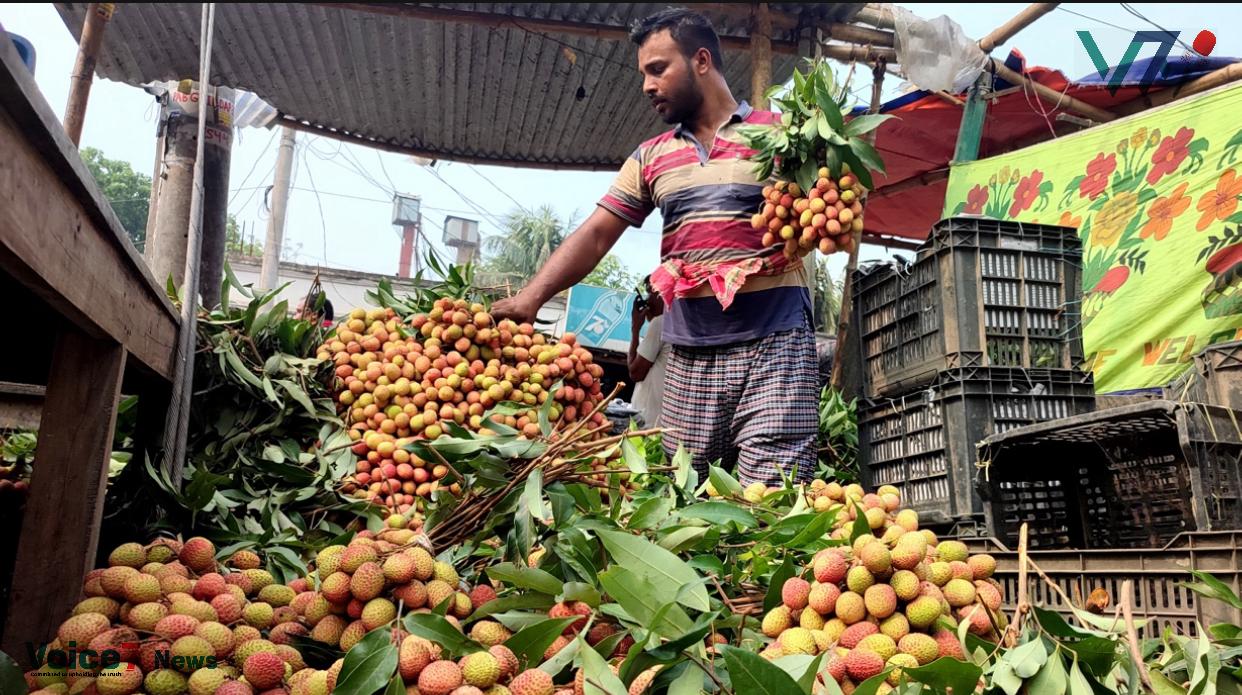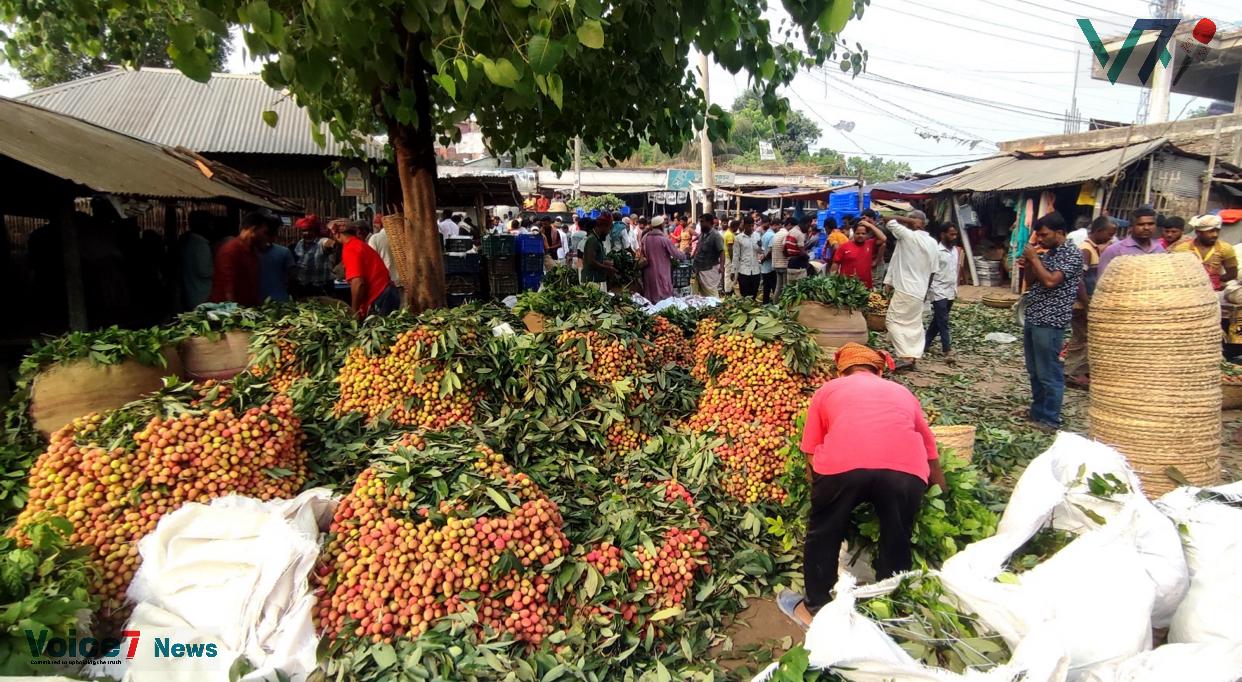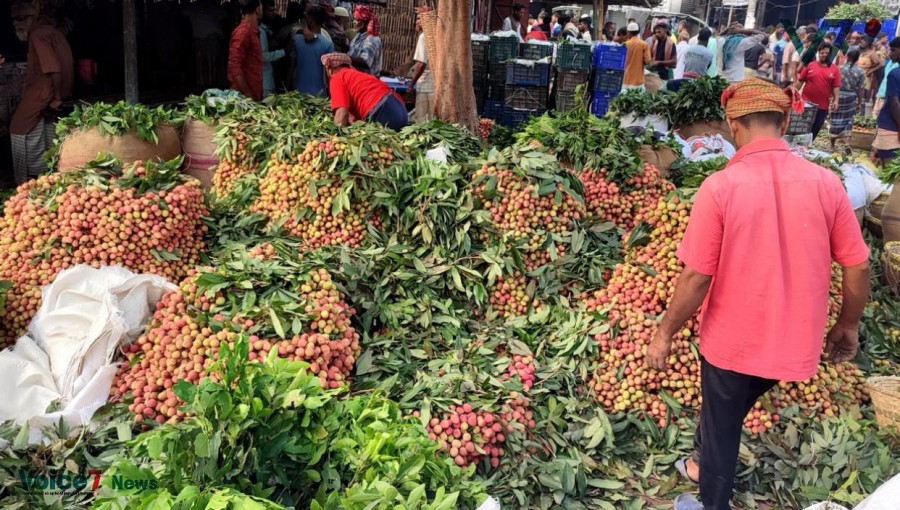Pabna, Bangladesh's litchi capital, faces a grim harvest. Despite a promising blossom season, scorching heat and drought caused a devastating drop in fruit, threatening the livelihoods of farmers.
Pabna, a northern agricultural district of Bangladesh, has experienced the worst heatwave in its history. This year, the mercury soared to a record 43.2 degrees Celsius. While this has severely disrupted people's lives, it has also had a devastating impact on agriculture, particularly litchi cultivation. Litchi farmers are facing the brunt of the losses, with concerns that they may not even be able to cover their production costs.
Pabna is known as the litchi capital of Bangladesh. The litchis produced here are renowned both domestically and internationally. Each year, litchis worth around TK 600 crore are sold from this district. Various litchi varieties, including local ones, Bombay, China -3, and Bedana, are cultivated here.
This year, litchi trees bore an abundance of blossoms, giving owners and traders hope for a bumper harvest. However, their dreams were dashed by the scorching heat and drought. Nearly half of the litchi fruits fell off the trees due to the scorching sun. Despite their best efforts, litchi farmers were unable to prevent the fruit drop.
Fearing further damage to the litchis from Kal Baishakhi storms and hailstorms before they fully ripened, farmers began harvesting early-ripening varieties and selling them in the market. Litchi trading has been going on for the past ten days.
On Monday morning (May 20), a visit to the Aoutapura Hat in Ishwardi Upazila, one of Pabna's largest litchi markets, revealed a bustling scene of buyers and sellers. Farmers brought baskets of litchis to the market, while wholesalers haggled over prices. The litchi market starts before dawn and ends by 10 am.
Local traders said that litchis worth crores of taka are traded daily at this market. Wholesalers from different parts of the country come to buy litchis and sell them across the nation.
Afzal Hossain, a litchi farmer from Jainagar village in Ishwardi Upazila, who came to the market to sell his litchis, said, "The yield is not good this year. More than half of the litchi fruits have been destroyed by the drought. As a result, it will be difficult to cover our production costs."
Kobad Ali, a litchi farmer from Aoutapura village, said, "Last year, I sold half the litchis from my one-bigha this year. Again, I'm afraid of storms and hailstorms. So, I'm selling my litchis a little early this year. The prices are more or less fair."
Mtiur Rahman, a wholesale litchi trader from Dhaka, said, "The litchi yield is low this year and the prices are high as well. Last year, we bought litchis for 2000 taka per thousand. This year, we have to buy the same litchis for 2500-2700 taka. The price of litchis per thousand varies from 1800 taka to 2600 taka depending on the quality and variety."
Ariful Islam, another wholesale trader from Narayanganj, said, "Pabna's litchis are popular all over the country. They have a good reputation. Buyers are satisfied with these litchis. That's why we come here every year to buy litchis. However, the market price is high this year, even though the yield is low."
Regarding the matter, Dr. Jamal Uddin, Deputy Director of Agricultural Extension, Pabna District, told Voice7 news, "We advised farmers through meetings during the heatwave. We told them to irrigate the base of the trees and spray water only on the fruits. Those who followed our advice got a slightly better yield."
He further stated, "Even though the yield is low, they are getting good prices in the market. This will compensate for their losses. And I hope Pabna's litchis will meet the demand of this district and most of the demand of the rest of the country."
According to the District Agriculture Department, litchis were cultivated on 4,721 hectares of land in Pabna district this year. The litchi production target for this year has been set at 39,278 metric tons.
Additional Information:
Litchi is a tropical fruit native to Southeast Asia. It is a popular fruit in Bangladesh, especially during the summer months.
Litchi is a good source of vitamin C ( Ascorbic acid) and B6 ( Pyridoxine), as well as Potassium(K) and fiber.
Litchi: Benefits and Risks- Expert Opinion
Rich in vitamins and minerals: Litchi contains a high amount of vitamin C ( Ascorbic acid), B6 ( Pyridoxine), Potassium(K), and fiber.
Boosts immunity: Vitamin C ( Ascorbic acid) boosts immunity and helps fight infections like colds and fever.
Improves digestion: The fiber in litchi improves digestion and helps prevent constipation.
Skin care: Vitamin C (Ascorbic acid) in litchi is good for the skin and helps reduce signs of aging.
Hair care: Vitamin B6 (Pyridoxine) in litchi helps hair growth and development.
Prevents cancer: Antioxidants in litchi help fight cancer.
Reduces heart disease risk: Potassium(K) in litchi helps control blood pressure and reduce the risk of heart disease.
Good for brain health: Antioxidants in litchi help protect brain cells from damage and reduce the risk of diseases like Alzheimer's.
Risk factors :
Increases blood sugar levels: Litchi contains a high amount of natural sugar, which can increase blood sugar levels. Therefore, diabetic patients should eat litchi in moderation.
Allergies: Some people may experience allergic reactions to litchi.
Upset stomach: Eating too much litchi can cause upset stomach, diarrhea, and nausea.
Mouth sores: The acid in litchi can cause mouth sores and burns.
How many litchis should adults and children eat:
Adults: It is safe to eat 5-10 litchis per day.
Children: It is safe to eat 3-5 litchis.
Expert advice:
1. Drink plenty of water after eating litchi.
2. Rinse your mouth thoroughly after eating litchi.
3. If you have any health problems, consult your doctor before eating litchi.
END/V7N/SRP/SMA/DK/





Comment: